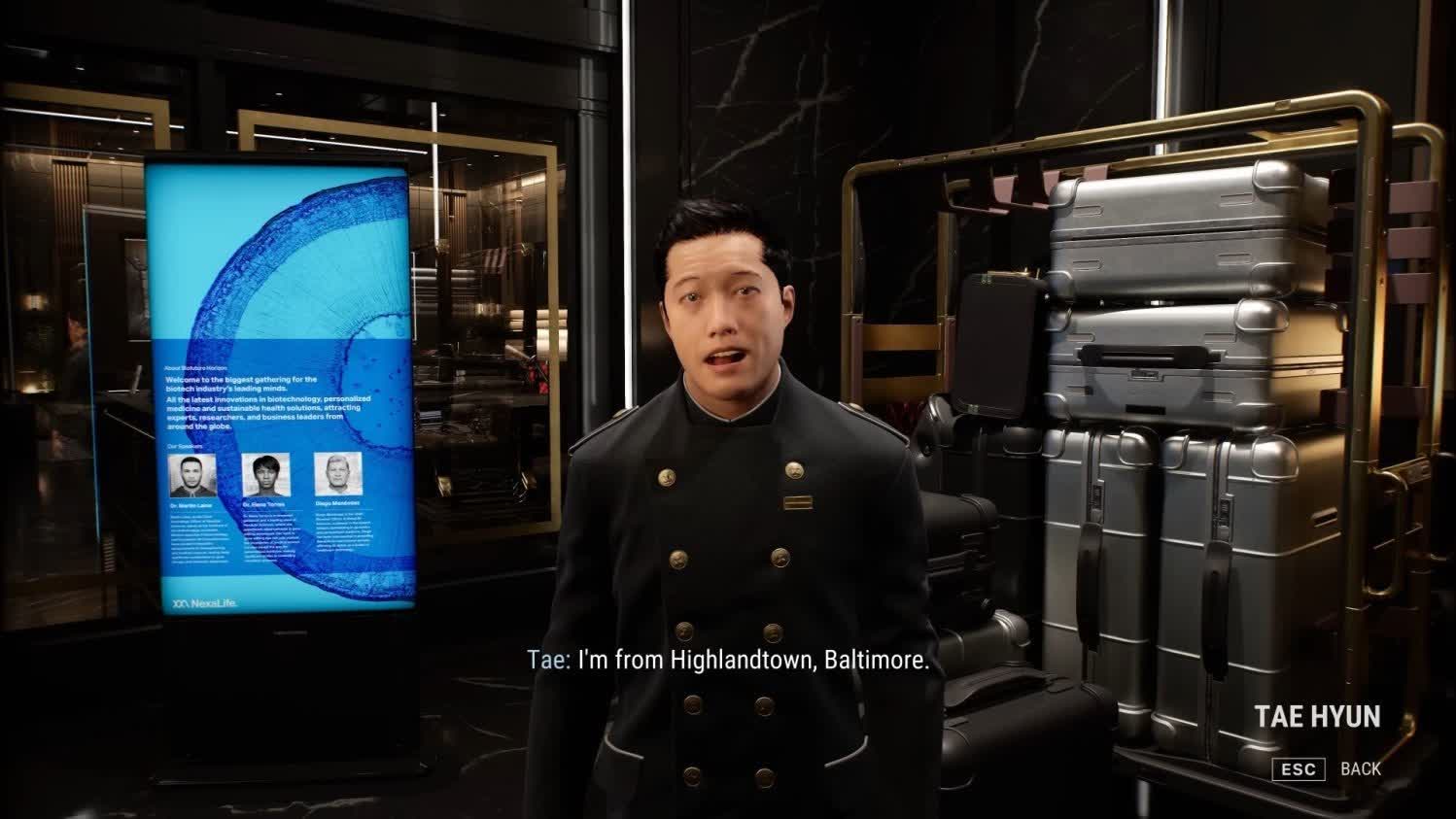In context: Monday kicked off 2024's Game Developer's Conference, opening with companies showcasing their AI-driven game creations. Unity teased a collaboration with a conversational AI startup, Convai, and Nvidia announced a slew of projects that utilize its MetaHuman and other AI technologies.
During his GDC 2024 keynote address, Nvidia CEO Jensen Huang played a brief trailer/explainer of Covert Protocol, a collaborative tech demo with AI SDK developer Inworld AI. Covert Protocol is a code name for an AI-enhanced development platform that Inworld is building. It utilizes Unreal Engine 5 and leverages several of Nvidia's AI technologies, including Riva Automatic Speech Recognition and Audio2Face, to provide realistic characters that can speak, react, and interact with their environment in real time.
Covert Protocol is similar to Convair/Unity's Project Neural Nexus tech demo, also featured at GDC. The main difference is that Covert Protocol looks much better than Neural Nexus. Graphically, it appears as one would expect from UE5 and Epic's MetaHuman technology, which is stunning. Neural Nexus uses Unity and appears drab and washed out.
The Covert Protocol models look a little more plastic than past MetaHuman Creator demos. However, one must consider that when Epic showcased the highly detailed, nearly photorealistic models, there were no complex backgrounds to chew up cycles. So developers could use full resources to make MetaHuman faces look as detailed as possible. Covert Protocol is closer to what the models can look like in a finished game, which is still pretty good.
The demo's gameplay is more of a conversational mystery adventure rather than the FPS Convai showcased. So we didn't get to see any heavy action, but it did demonstrate bits of conversations, and the facial animations and voice intonation of the AI were much better. The speech still doesn't compare to human voice acting, but it's also not completely devoid of emotion like Convai's models. There is some hints of emotion in there.
While the demonstration was undeniably impressive, it raises valid questions about the future of gaming, just as Project Neural Nexus did. Namely, do gamers truly desire the ability to engage in open-ended and sometimes inane conversations with virtual Chat-GTP avatars? Or will they reject these AI-driven ideas in favor of traditional voice acting and scripted dialogs?
It's hard to say without a finished product. However, we can already see AI fatigue setting in as companies inundate consumers with AI-based product ideas daily. If the current trend continues, AI could soon control everything, from gaming to daily tasks. Games developed without thought and soul poured into them - that rely too heavily on AI mechanics - are likely to annoy gamers rather than convert them to sales.
